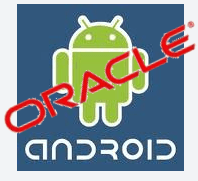| Supreme Court Asks For Government Help In Oracle v Google |
| Written by Sue Gee | |||
| Wednesday, 01 May 2019 | |||
|
The U.S. Supreme Court has again requested the views of the U.S.Solicitor General with regard to Google's petition asking for a judicial review of the copyright issues stemming from the Oracle v Google Lawsuit.
In 2010, when Oracle initially sued Google over the use of Java in the Android operating system, we thought it could spell doom for Android, and that seemed bad enough. Once the issue was widened to the question of whether APIs are copyrightable, the stakes became much higher and success for Oracle in the lawsuit could threaten the fundamental premise on which software is developed - that existing APIs can be used in new and novel implementations. If you have the impression that this lawsuit is going round in circles you are justified in this opinion. This is the second time that Google has issued a Petition for A Writ of Certiorari on this very issue. For a reminder of the first occasion, see Android Copyright Battle Goes To Supreme Court. Back then the Supreme Court sought advice from the Obama administration and then declined to consider Google's petition, sending the case instead back to Federal circuit. This led to a repeat scenario. In the second jury trial in May 2016 the verdict was that Google's use of the 37 Java APIs constituted "fair use". This was then overturned in March 2018 by the U.S. Court of Appeals for the Federal Circuit in Washington, which specializes in intellectual property disputes. The same three judges who had found in Oracle's favour in 2014 determined again that Google impermissibly used Oracle's software code in Android under U.S. copyright law, Appeals Court Rules In Favor of Oracle. In January Google petitioned the Supreme Court for a second time and the EFF (Electronic Frontier Foundation) supported this with another Amicus Brief make a strong case case why the Supreme Court should rule on the copyrightability of APIs. Indicating again an unwillingness to do so, the Supreme Court has now asked the Trump administration to offer its views on whether it should hear Google's petition. Oracle initially sought $8.8 billion in damages but that was some years back. In its brief in opposition to Google's petition to the Supreme Court Oracle argues that Google prevented Oracle from entering the smartphone market - something it has never previously shown any intention of doing. However, it is isn't the amount of damages that is the issue here, Instead it is much wider issue the relate to the entire future of computing. As Google has stated: “If allowed to stand, the Federal Circuit’s approach will upend the longstanding expectation of software developers that they are free to use existing software interfaces to build new computer programs. Developers won’t be able to use free languages like Java to create programs a result that will undermine both competition and innovation.” Worryingly the previous time that the Supreme Court asked the Solicitor General for his view, the White House advised that APIs are copyrightable. It is to be hoped that there's a different outcome this time round.
More InformationSolicitor General to Advise Supremes in Google-Oracle Case Google's Petition for A Writ of Certiorari Related ArticlesEEF Calls For Supreme Court To Decide If APIs Copyrightable Google Asks The Supreme Court To Decide The Future Of Computing Computer Scientists Petition Supreme Court Over API Copyright Are APIs Copyrightable? Computer Scientists Urge Court To Say No Supreme Court Refuses To Reconsider API Copyright Decision Appeals Court Rules In Favor of Oracle Supreme Court Refuses To Reconsider API Copyright Decision White House Advises That APIs ARE Copyrightable Supreme Court Seeks Guidance On API Copyright Issue Android Copyright Battle Goes To Supreme Court Oracle v Google - Are Computer Languages Copyrightable? To be informed about new articles on I Programmer, sign up for our weekly newsletter, subscribe to the RSS feed and follow us on Twitter, Facebook or Linkedin.
Comments
or email your comment to: comments@i-programmer.info |
|||
| Last Updated ( Saturday, 16 November 2019 ) |






